Support strong Canadian climate journalism for 2025
Ross Beaty will look you in the eye and tell you that he believes that “trees are spiritual beings,” and that nature is his religion. He’ll talk comfortably about our “ephemeral” time on earth and rant about our misguided obsession with Gross National Product. If you didn’t know better, you’d take Ross Beaty for one of B.C.’s homegrown hippies — another back-to-the-land type in his plaid shirt and rubber boots.
The thing is, Beaty is the founder and chair of the second-largest silver mining operation in the world, Pan American Silver Corp.
A field geologist turned serial entrepreneur, Beaty knows that his passion for nature conservation is hard for some people to swallow. “It’s easy for some environmentalists to condemn mining,” says Beaty. “But it’s not strip mining. We make a hole and most of the work is underground. We mostly do the work where there is very little or no biodiversity. We fill the hole back up when we’re done. Where do they think they get the metal for their bikes and wind turbines?”
Beaty is just warming up. He leans forward. “I’m going to go on a rant now,” he warns. "It’s crazy to keep focusing on growing our GDP. We should be thinking about zero growth.” He sees inevitable global collapse if we keep pushing for growth in a system based on finite resources.
“We don’t need to drive production. We need to reduce consumerism, to live more simply. We don’t need to work harder to get more stuff. We are at peak junk. We are destroying the planet.”
What if the ecological evangelist finds minerals in a valuable ecosystem? “I’m in that situation right now,” he says, describing a site in Brazil. “The local people want the jobs and want the roads that would give them better access to healthcare… I don’t want to do it, but the government there wants it, the people want it.” He continues, “The roads will help them get better health care, better schools. If I don’t do it someone else will. If I do it, I know it’ll be done right.”
‘Getting it right’ has given Beaty almost legendary status in the world of mining and, more recently, as a driving force in Canada’s renewable energy sector and conservation-oriented philanthropy. In recognition for his environmental funding and business contributions, Beaty was inducted as a Member of the Order of Canada in 2016.
Beaty is a guru to many investors who watch his every business move, but he's approachable and answers his phone with a friendly voice and an apology for the clattering sound in the background. He’s at home, doing his recycling. He takes time to talk while juggling demands for speaking engagements, interviews, work with not-for-profit organizations, all-the-while negotiating billion dollar deals. What others would call stressful, Beaty calls “normal.” In one week, for instance, Beaty accepted a carefully considered takeover of Alterra Power Corp. by Innergex valued at $1.1 billion.
Having grown Alterra from nothing more than a passion for clean energy, Beaty was happy to find a way to grow his nine-year-old company with the merger. “Because Innergex paid in the form of Innergex shares I am now a significant shareholder of Innergex and a Board member, and Alterra has been fully merged into Innergex.” He explains that Innergex holds 80 per cent of shares held by former Innergex shareholders while the Alterra shareholders hold about 29% of the enlarged company.“I am still in the business of renewable energy, “ says Beaty. “The best way to build the business was to partner with a company with a lower cost of capital.” Beaty can’t help but smile and add that there was “good karma” with the people at Innergex.
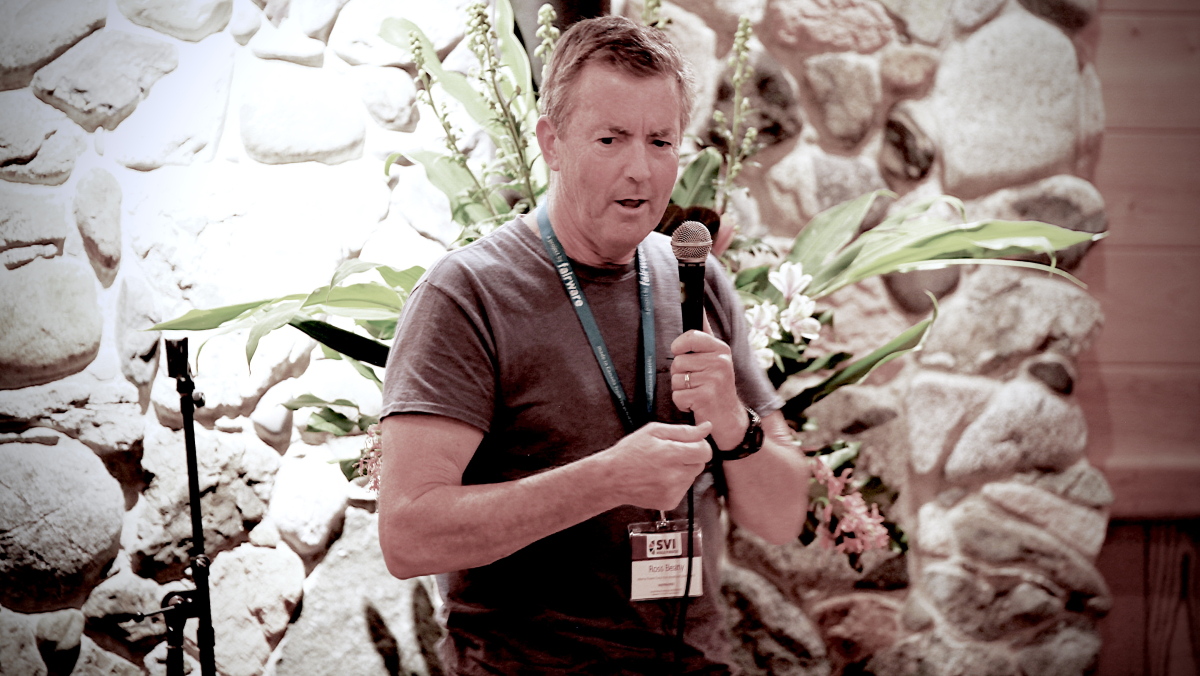
Coinciding with the renewable energy deal, Beaty put together a three-way merger with another of his other companies to create Equinox Gold Exploration Company, while also stepping in as chair. In between returning from Brazil and closing business deals, Beaty also found the time to boat over to speak at Hollyhock’s Social Venture Institute on Cortes Island, near Vancouver Island.
At Hollyhock, where leading-edge thinkers go to learn, speak, or lead, Beaty didn’t mince words. “It’s a great group, but they are focused on social enterprise. I am focused on environmental protection. -- On protecting the land and biodiversity. Without a healthy environment, you won’t have anything -- including social enterprise.” He tilts his head for emphasis. “I told them something new entrepreneurs need to hear.”
With a similar directness, when a television journalist talks to Beaty about his clean energy investment, and asks what he would say to his “buddies” in oil and gas, Beaty snaps, “I’ll tell them they are dinosaurs.”
In spite of the North American obsession with consumer goods, oil and gas, Beaty remains optimistic. “There are still more people like us,” he says, referring to conservationists. He is also confident that “in the end, Trump will just be a small blip in history.”
Meanwhile, Ross and his wife Trisha Beaty, stay focused on their own work in conservation and philanthropy. The couple has already donated millions to various Canadian Universities and environmental projects, including $6 million to Panthera, the conservation project in Brazil. “Its not that I’m particularly interested in the big cats, but in protecting the big cat habitat, we protect the biodiversity of the area. I’m very interested in protecting biodiversity.”
The Beaty Biodiversity museum is the result of Beaty’s $8 million donation to UBC, as is the Earth Science building. At Queen’s University, a $5-million donation helped create the newly opened Beaty Water Research Centre. In addition he and his wife Trisha have designated $34 million for distribution through their foundation, the Sitka Foundation that distributes about $3.5 million annually to a 74 Canadian environmental organizations focused on biodiversity. In the end, aside from taking care of his family, Beaty will leave his financial legacy to environmental protection.

In spite of the many organizations that he supports, Beaty, finds the time to engage directly with numerous project leaders and organizations. “I just have lots of energy,” he says.
He calls it “manic,” but he doesn’t exude frenetic energy. Instead, he’s more like a precision-built machine -- a race car that isn’t designed to idle. “It’s insane to a lot of people but I love it, and that’s how you can achieve a lot. In a materialistic sense,” he adds.
Beaty, 66, says he is still happier sleeping in a tent than a high-end hotel. He loves to be on the move, “I love to travel, I love to move, it barely matters how, whether it’s by kayak or canoe or boat or bicycle or train or hiking I just like to move. I can’t explain it. I’m a vagabond. A nomad.”
Beaty will climb mountains, paddle wild rivers, hike, and bike in places that most adventurers can only dream about. Beaty has paddled the Nahanni River in the North West Territories and thinks BC’s Bowron Lakes “are the best place in the world to canoe.” He's also hiked the Tibetan Plateau with his friend, the famous anthropologist, Wade Davis. Beaty is also acutely aware of the carbon footprint of his travels. “I’m not perfect,” he says, “but at least I’m trying to make up for it.“
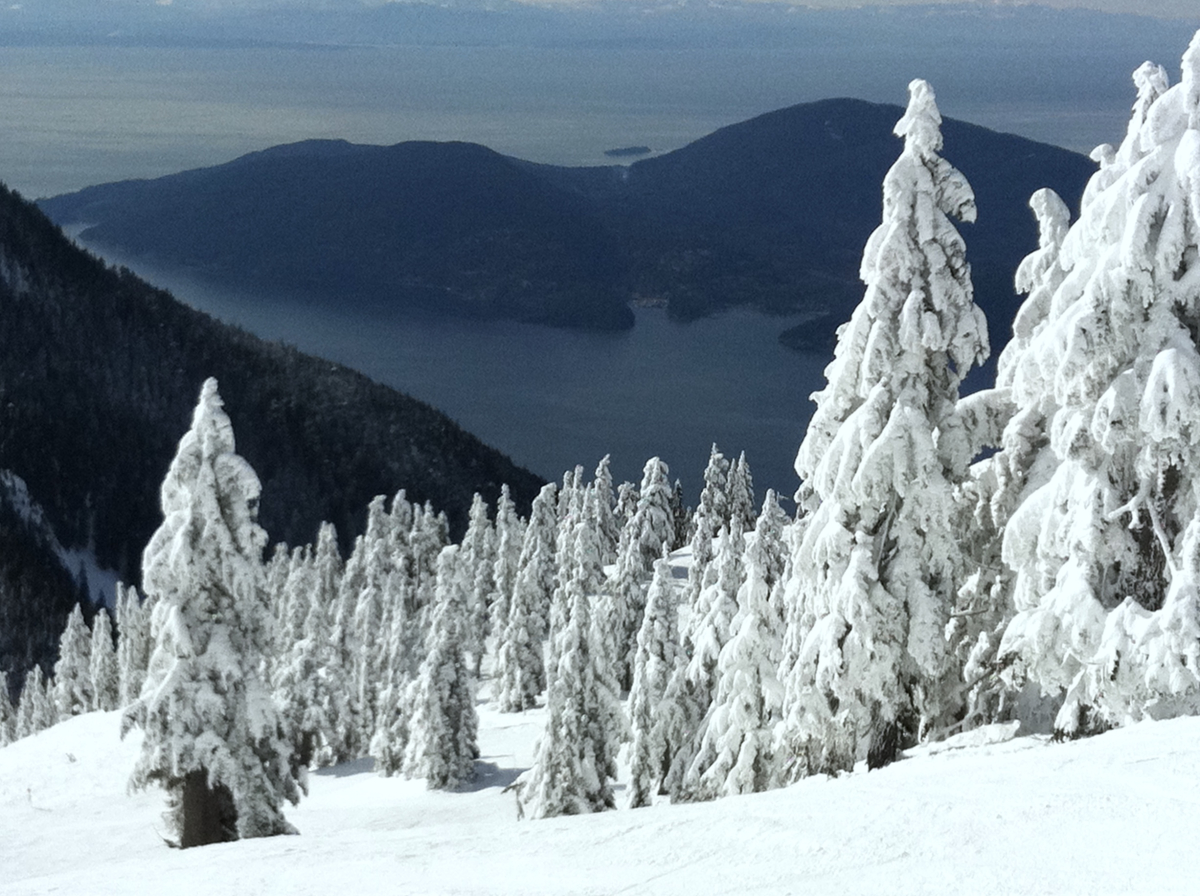
Being self-employed has given Beaty the freedom to pursue outdoor adventures. “I work when I want to, I don’t work when I want to. I take a million vacations. I always keep three balls in the air, one is work one is family and one is me. As long as I keep all three in the air everything is good. If I drop one, it’s a calamity.“ He goes on, “Without Trisha I couldn’t do any of it. She’s made it all possible.“ He pauses, “She’s been amazing.”
Beaty also attributes half of his success to luck. ”Geologists like me work all their lives and never find a mine. I’ve found three or four…I can’t take it for granted. Luck is a big part of my success. I’m not afraid to admit it... I found a gold mine in Nevada, my first property, that started my career. I was able to sell it and start something new, I’ve founded 14 or 15 companies.” He adds, “12 have been sold.” Along the way, he's generated $2 billion for shareholders.
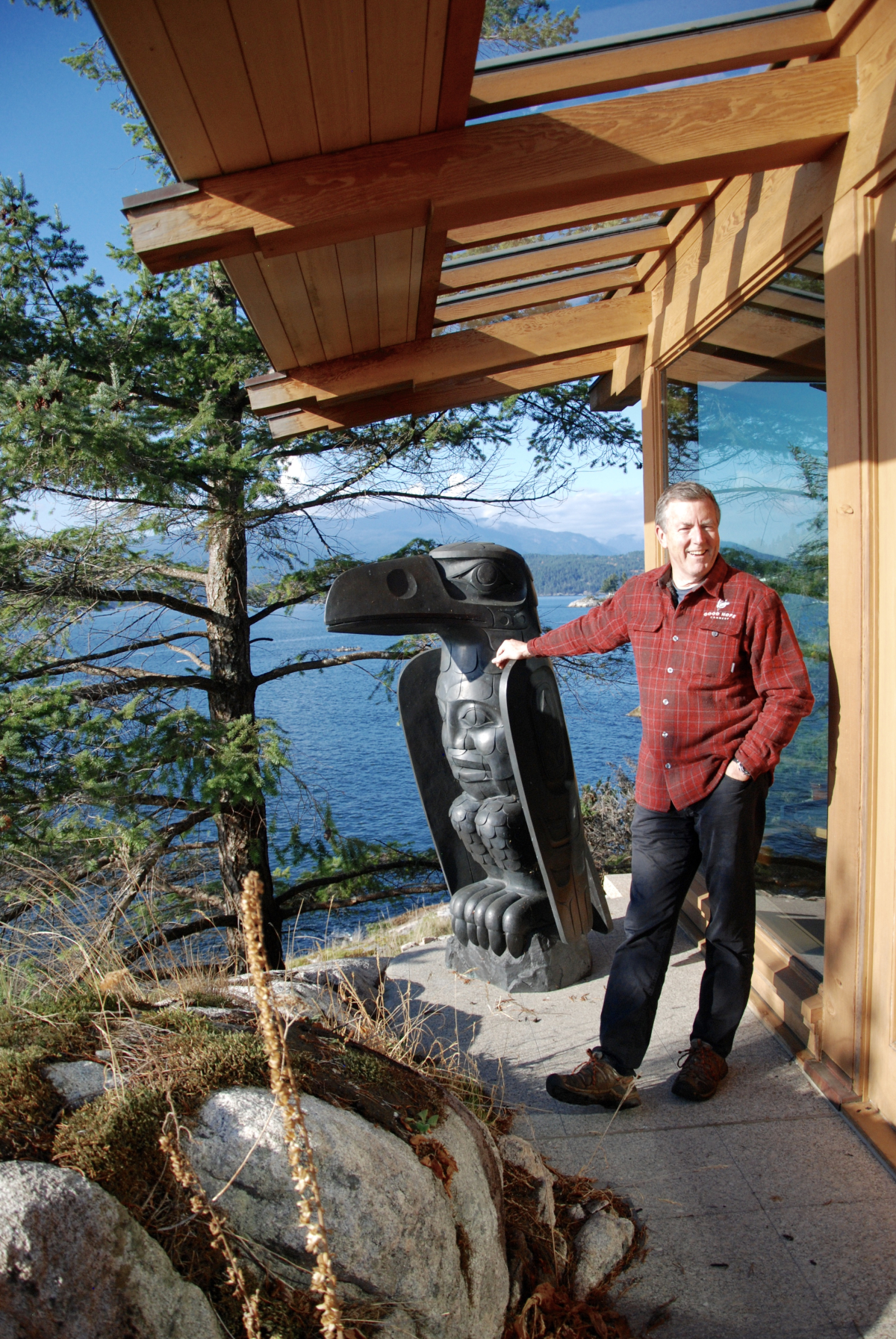
At home on Bowen Island, Ross Beaty leans on a First Nations sculpture of a raven. Left to the Beatys when a friend moved, the bird would seem a perfectly suited totem. The raven is valued as a guardian spirit, but also a symbol of dichotomy, of good and bad, not unlike the burdensome label of an industrialist/conservationist.
When not at his office in Vancouver or traveling, Beaty is comfortable in his small, tree-hugging community on Bowen Island. Just a short boat ride from the mainland, Beaty can casually cross paths with a surprising number of other global game changers in both industry and philanthropy, including Wade Davis, Rudy North, and Haig Farris, who have also each been awarded the Order of Canada.
Beaty began coming to Bowen with his widowed mom in the seventies, and later came back to his own little cottage with his own family. Before Beaty and his wife lived on the island full-time, their four daughters and one son spent childhood summers in a cottage on the west side of Bowen. “It was great. They weren’t on electronics and the kids played together all summer.”
When his career took off, the couple bought the property that was up for sale all around their summer cottage. They then built a permanent home on a rocky knoll overlooking the sea.
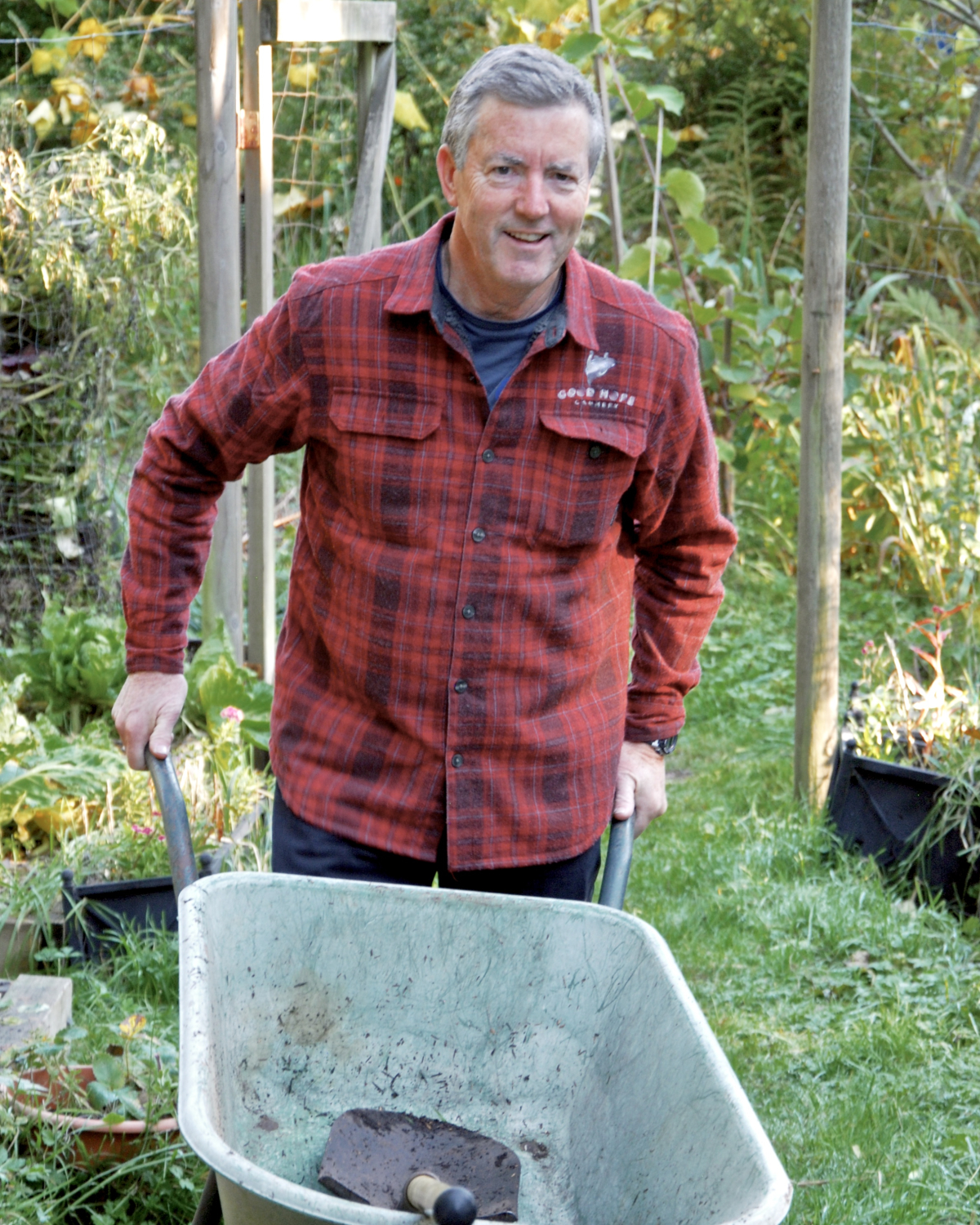
The Beatys designed their home with attention to detail, as opposed to excess. It’s architecturally beautiful and suited to the site. Modest compared to many other homes on the island, Beaty is proud of what would have been a nearly impossible task. “We only took out one tree to build this.”
The Beaty home is quintessentially west coast, anchored in the rocks, and tucked into the trees at the edge of the sea. Inside, the home is country-style comfortable. Here, in the modest-sized open kitchen, Beaty makes a simple French-press coffee while offering to sweeten it with honey from bees in the couple’s apiary. “We try to be self-sustaining,“ he says.
In a flat part of the forested, rocky, property, the couple grows vegetables, berries, fruit and nut trees, and care for chickens and bees. “One of our colonies died,” he says, reflecting on the global problem of colony die-offs.
Beaty’s tone lightens as he moves among the trees, reflecting on his personal life. Though he lost his father prematurely, Beaty concedes that while he grieves death of a loved one, he doesn’t dwell on loss. “I’m an optimist,” he says. “I get on with it.” He continues. “ I have a lot of energy, and I have the desire to live life big, I just want to do everything. I rarely say no to anything and I revel in the beauty of the world.” He pauses briefly, “…but in the end, it doesn’t matter if you lived 'big' or lived 'small'. Life is ephemeral. In the end, we all end up the same, under the same earth.”
Beaty stands outside his home, reflective. “You just have to do what you can, while you’re here,” he says. Then he’s off, another commitment, and still more to do.

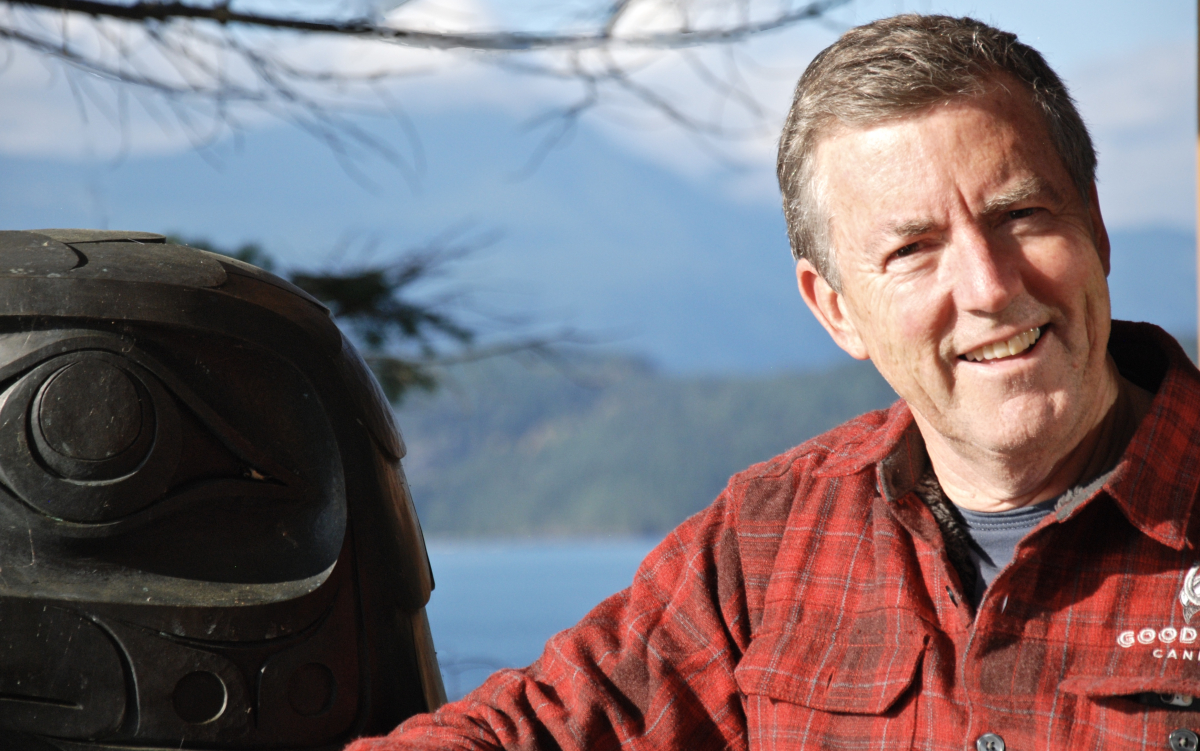

Comments
There has been very serious contestation of Beatty's projects, painting a rather different picture. Some of Pan American's operations, like in Zacatecas, Mexico, are actually dangerous for independent journalists to go to, so we haven't been able to get material to publish. Feel free to ask how they manage to do business there. But here's one in Argentina:
For Water and Life: We reject government announcements and call for the approval of the People's Initiative to ban megamining in Chubut province, Argentina
Union of Citizen Assemblies of Chubut - UACCh
http://noalamina.org/mineria-argentina/chubut/item/16237-por-el-agua-y-…
14 September, 2016
The assemblies of the province, gathered together in the Union of Citizen Assemblies of Chubut (UACCh), repudiate the permanent assaults of governments and mining companies announcing the imminent exploitation of mineral deposits on our territory.
For almost fifteen years, the people of Chubut have maintained a total rejection of large-scale mining activities and demanded that the official promises about "priority being given to the protection of water supplies" are translated into binding legislation. This would take place with the approval of the proposed Popular Initiative to Ban Metal Mining (including radioactive materials) in all stages and forms of exploitation.
Yesterday, in Buenos Aires, President Mauricio Macri enthusiastically welcomed the Chairman of Canadian miner Pan American Silver, Ross Beaty, who joyfully announced an investment of US$1,000 million for the development of the Navidad silver-lead megaproject in the Chubut central plateau.
Regarding this company, its Chairman, the mineral deposits and the Navidad project, we say:
• It is a lie that the project is "ready". After more than 10 years of exploration on the site, an independent study of the groundwater reservoirs was never carried out.
• Since they speak about processing 18,000 tons of rock daily, it is a lie that the intended exploitation will not be “megamining”.
• It is a lie that the funding for the mining project "is ready". Other damaging mega-projects like Pascua Lama and Potasio Rio Colorado claimed to be "ready" as well.
• The provisions of ILO Convention 169 regarding free, prior and informed consent for the indigenous communities, were not met with regard to the ancestral inhabitants of the Chubut plateau territory, so the presence of Pan American Silver in that territory is clearly illegal.
• This project is not sustainable: it will consume more energy and generate more waste than all the urban centers of the province combined.
• Opening the door to mining in Chubut will not only involve the Navidad project, but will also open up the development of the much more dangerous uranium mining industry.
• The international price of silver is more volatile than ever and lead is a poison of little economic value, the use of which is being reduced worldwide.
• Using the underground water to ensure our food sovereignty, and that of future generations, is a better option than using it for washing minerals.
• Ross Beaty has misled the public on other international projects. To mention one example, his company Magma Energy and its “investments” were emphatically rejected in Iceland some years ago.
At the same time, the Legislature of Chubut is ignoring the people, democracy and the Constitution of the Province, because they never even considered the proposed bill, backed by more than 13,000 signatures submitted by the assemblies through the constitutional mechanism of Popular Initiative.
At an unfortunate session on 25 November 2014, a law was passed that allowed large scale mining, without even reading the proposal originally submitted. This happened on the legal deadline for doing so, and with proven meddling by mining companies representatives, despite the huge organizational effort carried out by environmental assemblies.
Based on their own painful experiences, and those of other parts of the country and the world, the local people know that mining ruins water sources and destroys regional economies. In response, indigenous peoples have been courageously defending their territories against the claims of foreign and local companies to exploit the natural wealth of Chubut.
We demand an economic model in favor of life, that truly benefits the people by putting an end to plundering and pollution.
We call on the residents of Chubut to intensify all dissemination of information and social mobilization efforts.
Approve the Popular Initiative to ban megamining in Chubut!
The plateau is no sacrifice zone! They shall not pass!
More information about the Popular Initiative to ban megamining in Chubut: http://www.leymineriachubut.com.ar/ Facebook Page: https://www.facebook.com/iniciativapopularchubut/
Esquel Assembly: http://www.noalamina.org/
Phone contacts: Pablo +54 2804630754 / Nelly +54 2804341797